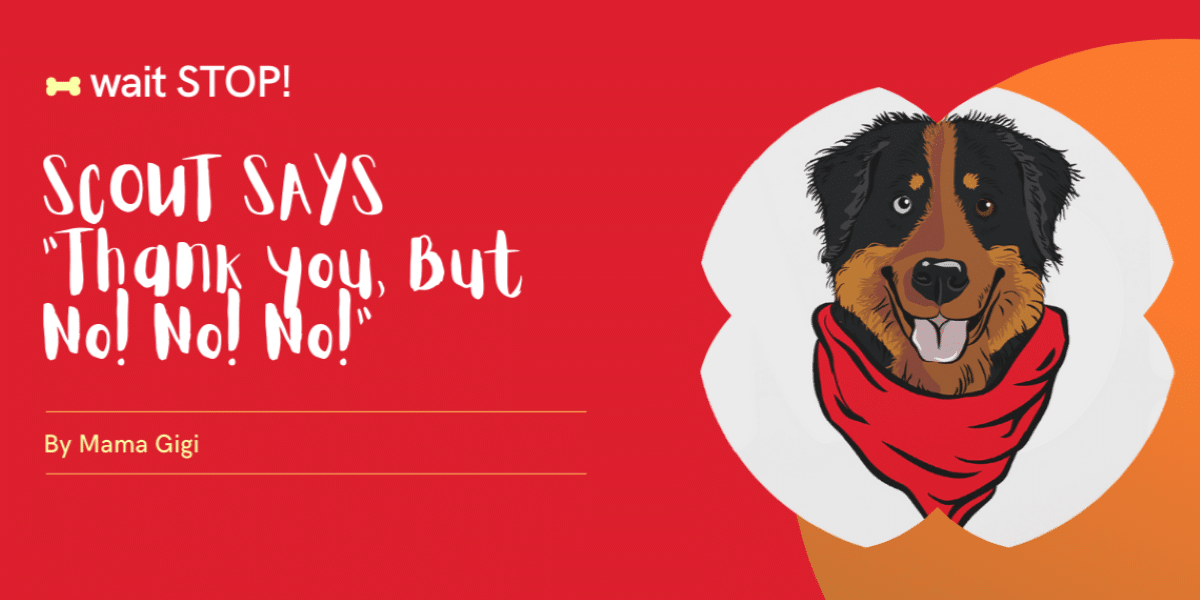By: Jason Gerber
Learning doesn’t have to be rough! The book, “Scout Says Thank You… But NO NO NO” proves that pet safety can be an engaging adventure.
It’s no wonder that welcoming a pet into your home is like adding a new member to your family. It comes with boundless joy, unconditional love, and, yes, significant responsibility.
Among the many facets of pet care is something so seemingly mundane yet critical: understanding the dos and don’ts of a pet’s diet, especially when the pet owner is a child.
Following the earnest and colorful journey in the children’s picture book “Scout Says Thank You… But NO NO NO,” we are reminded of this crucial aspect of pet parenting.
Authored by the compassionate pet lover and creative spirit, Mama Gigi, the book brings to light the importance of awareness in what we feed our four-legged companions.
But who is Mama Gigi? Born in Alberta, Canada, and raised amidst the lush landscapes of British Columbia and the Yukon Territory, she has carved a life steeped in artistic expression and a deep-seated love for animals.
Here are some heartwarming lessons that Mama Gigi presents, and unpack the life lessons it contains for both young children and seasoned dog owners.
About the Author: Mama Gigi
Mama Gigi’s connection with nature and furry friends began early in life and blossomed as she moved from Beautiful British Columbia to the far-reaching wilderness of the Yukon Territory at the tender age of twelve.
Her creative talents were nurtured by exceptional educators, including Mr. Ted Harrison, the Yukon’s most prolific artist and illustrator of Robert Services “The Cremation of Sam McGee”. Growing alongside her passion for physical wellness and artistic pursuits. This same love led her to adopt shelter dogs, providing them with the care they deserved and finding them loving forever homes.
Now residing back in British Columbia on serene Vancouver Island, Mama Gigi embarks on a new chapter, weaving her experiences and dreams into creations that touch the hearts of readers. The summer of 2022 marked a pivotal moment for her — a family visit to Nova Scotia introduced her first visit to her grandchildren and set the stage for the real-life events inspiring “Scout Says Thank You… But NO, NO, NO.”
Bearing witness to a frightening incident involving her grand dog Scout and a few toxic raisins, Mama Gigi transformed a heart-racing experience into a narrative that’s both enjoyable and educational. She hopes her story will resonate and make a difference in the lives of pet lovers everywhere.
As the saying goes, ‘An ounce of prevention is worth a pound of cure.’ ‘Scout Says Thank You… But NO NO NO’ exemplifies this by turning a potential pet emergency into a valuable lesson.
When Scout, a lovable dog, enjoys a visit to his human grandparents, a simple misstep—and ingestion of raisins—leads to a teachable moment about the dangers of seemingly harmless human foods to pets. Through this scare, a safety system emerges, educating young readers on what treats are dog-friendly and setting a foundation for responsible pet care.
“Scout Says Thank You… But NO NO NO” triumphs with bright illustrations and a clear message. Its direct approach, repeating the “NO, NO, NO” refrain, hammers home the lesson of vigilance. However, the repetitive simplicity may not cater to all readers, and though the story stems from a negative scenario, it provides an authentic impetus for the message of precaution.
Mama Gigi transforms a personal trial into an educational adventure, placing the well-being of our furry friends at the forefront. The story underlines a common oversight in pet care and offers a valuable lesson in prevention. It imparts an easy-to-remember strategy for children and adults alike, ensuring the safety of their four-legged companions.
Final Words
“Scout Says Thank You… But NO NO NO” by Mama Gigi is a vital resource for pet owners, blending storytelling with lifesaving information. As we enjoy the heartwarming tale of Scout and his family, we’re reminded of our responsibility to keep our pets safe, building a loving environment where they can thrive.
Published by: Martin De Juan


















